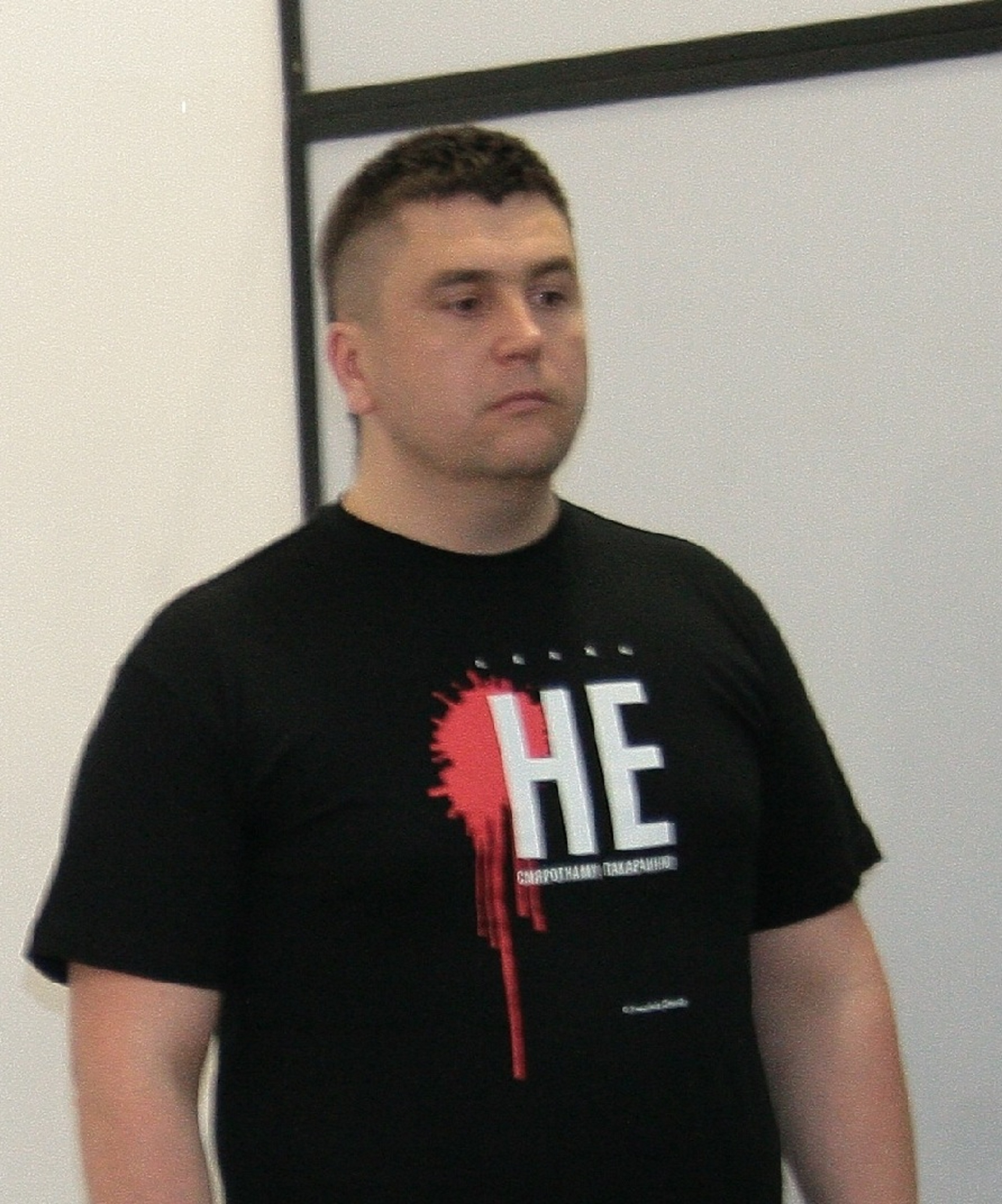The tape, entitled “The cause of death is «–» “ specially created within the campaign “Human Rights Defenders against the Death Penalty,” was directed by Viktar Tratsiakou based on the script of Palina Stsepanenka.
According to the authors of the film, the death penalty in Belarus is a real mystery: prisoners’ relatives are not informed about the date of execution, they are not given the body of the executed and are not even told where the executed person has found his last refuge. Moreover, on the death certificate, the box “cause of death” is left blank, which explains the name of the film.
The film-makers draw the audience’s attention to the suffering of the families of those who were sentenced to death. The heroine of the film is the mother of Andrei Zhuk, who was executed by shooting in March 2010. Sviatlana Zhuk learned of her son’s death when she brought another parcel for him. The parcel was not accepted, and the guard just said: “Don’t look for him anywhere. He was departed to the place of execution”. That is how Sviatlana Zhuk realized that his son had already been shot.
“The priest conducted the funeral and told us to bury his things into the grave of one of our relatives and sprinkled it with holy soil. And we did so, “- says, weeping, Sviatlana Zhuk.
 “The film was created in order to inform broadest possible range of interested people, to influence public opinion in this matter and to convey an alternative idea, because the state considers this matter very one-sidedly. Representatives of the state, only talk about the emotions of crime victims while no-one considers the emotions of relatives of convicts. Every time we make a presentation, there is also a debate held where people speak out on the death penalty. And it is very important that this issue is discussed”, – said one of the creators of the tape, a human rights defender Andrei Paluda (left).
“The film was created in order to inform broadest possible range of interested people, to influence public opinion in this matter and to convey an alternative idea, because the state considers this matter very one-sidedly. Representatives of the state, only talk about the emotions of crime victims while no-one considers the emotions of relatives of convicts. Every time we make a presentation, there is also a debate held where people speak out on the death penalty. And it is very important that this issue is discussed”, – said one of the creators of the tape, a human rights defender Andrei Paluda (left).
The presentation was attended by guests from Ukraine, Belarus and Lithuania as well as participants of the Summer School on Human Rights, carried out for several years now by the Human Rights Centre “Viasna” in cooperation with the Belarusian Human Rights House. The panel discussion was organized during the presentation, where experts and students of the school, as well as other participants of the event were able to discuss controversial but important issue of the death penalty in Belarus.
“Many people believe that it has nothing to do with them. However, given the current judicial system of Belarus, each of us can become a “dash”, – these words by the coordinator of the campaign “Human Rights Defenders against the Death Penalty”Andrei Paluda ended the presentation
***
At the moment Belarus is the only country in Europe, where the death penalty still exists and practised. For this very reason, Belarus can not become a member country of the Council of Europe. According to human rights defenders, 3 people are now waiting for the execution of death sentences in Belarus.
“Human Rights Defenders against the Death Penalty” is a compaign started in 2009. The compaign’s goal is the abolition of the death penalty in the country and introduction of Belarus to European values.
Representatives of the human rights community of the country are urging anyone who is not indifferent to this question to join a special petition that they have prepared. You can do this by going to following link: http://petition.spring96.org/.
Today many famous people has joined the compaign by signing the petition, such as: Lyavon Volsky, Sting, Zinaida Bandarenka, Mechyslau Hryb, Adam Hlobus, father Aliaksandr Nadsan and a lot of other famous people. This appeal signed by both well-known Belarusians and foreigners, and ordinary citizens will be given to representatives of Parliament, Government and President of the Republic of Belarus. The initiators of the campaign hope that the Belarusian authorities will move to the decisive action to halt the execution of death sentences.
Related articles
The UN HR Council urged to appoint Special Rapporteur on Belarus
We invite you to join the discussion of the Strategy of Belarusian Human Rights Movement


